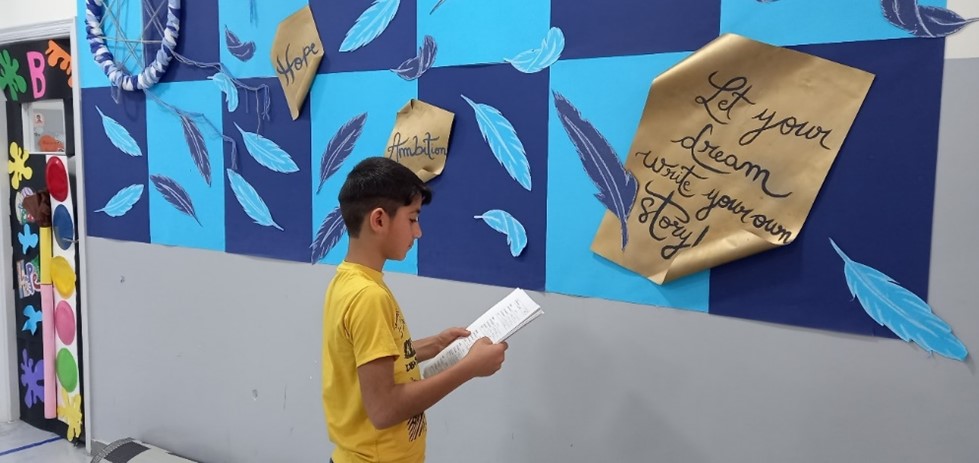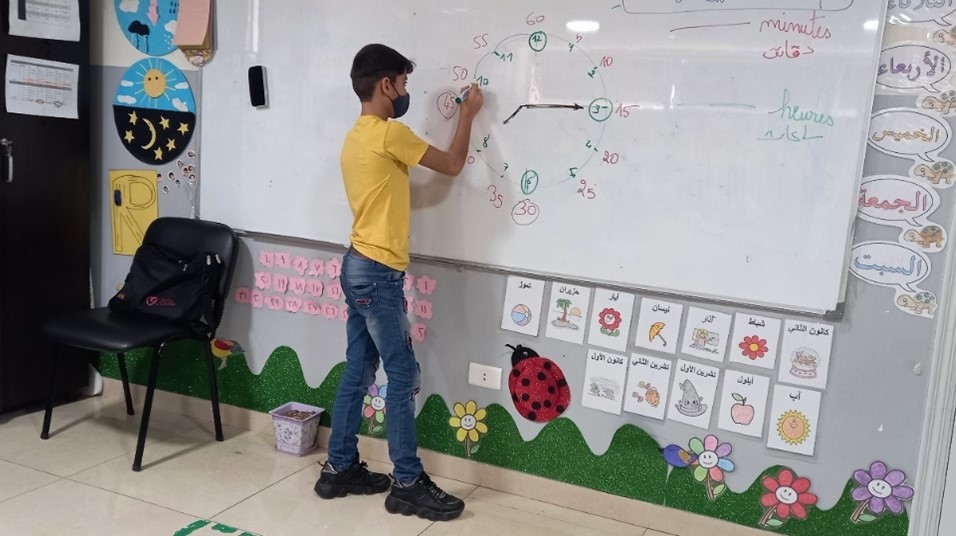
July 15th is World Youth Skills Day where we take a moment to recognize the importance of empowering young people with skills for employment, entrepreneurship, innovation and sustainable development.
At IJI we are champions of education and with your support we reach marginalised communities where children are at a disadvantage through no fault of their own, often experiencing great trauma.
From building schools and vocational training centres in South Sudan to providing safe learning spaces for displaced children and refugees – many of our projects empower youth not only to give children a chance at a brighter future but with sustainability in mind which will empower them now and in the future.
In Lebanon, having struggled with the massive influx of Syrian refugees due to war and natural disaster, displaced communities especially are without services including schooling. Partnered with Jesuit Refuge Service (JRS) the “Education Jbeil programme” was a three-year initiative beginning in 2020 and concluded in 2023, funded by Misean Cara.
It aimed to protect the most vulnerable children by providing access to safe spaces and quality educational opportunities directly impacting 992 children through community based early-childhood education and mental health and psychosocial support.
A study carried out by UNICEF (2021) shows that non-formal education was identified as a means to provide psychosocial support, life skills, and a structured environment that can help children recover from the traumas of war. The Jbeil programme was about taking that knowledge and building sustainable support systems for children’s development, especially those set back by war and grief.
The impact of the project saw:
- 75% of children between 5-10 years improve skills through learning support courses and educational and recreational activities.
- 90% of 4–5-year-olds improved skills through early-childhood education programmes.
With patience, understanding and recognising the specific needs and set-backs of displaced children, the Jbeil programme has given vulnerable communities the support and sensitivity required for children and their families to piece their lives together.

Moe* is one of many children who had to flee his home country to seek safety. He had to overcome many obstacles, particularly because he belongs to the generation of distance learners.
To try and support his family, Moe worked out of necessity and his education gradually became side-lined.
Moe, a 10-year-old boy and his family fled Syria to Lebanon. In 2019 he joined JRS Jbeil and is currently a third-grade student today. Moe attends the JRS learning support program at Nicolas Kluiters Centre (NKC) in the morning and a local public school in Jbeil in the afternoon.
The JRS learning support program is designed to provide language and homework assistance to kids registered in public schools, as well as other educational activities to help the students succeed in school.
While working in a supermarket with adults, he was subject to harassment and discouraged by some adults persuading him to drop out of school and work full time. But due to his mother’s persistence, as well as the social worker support through programme outreach, this was prevented from happening.
His previous work experience in the supermarkets, coffee shops, and sewing encouraged him to study harder and to complete his education as to not need to work in these conditions.
“Without learning, I can’t accomplish anything” – Moe
Life at home is not any easier for Moe.
“I wish my sister could hear and speak, I wish I could acquire a bike, and I wish to complete my education at university”, he tells us.
His younger sister, Lamia*, is four years old and was born with hearing difficulties. She is now able to use about 30% of her hearing due to medical aid and provided equipment. Screaming or expressive motions are the only ways she can express herself, and the medical treatment is taking a long time.
His sister’s condition has a significant impact on Moe. He remains depressed because he attempts to play and spend time with her, but she does not respond to him, which makes him feel that he is unable to communicate with her as he wishes. He is also impacted by his mother’s situation, as she travels between hospitals in an attempt to secure the required care.
Moe wishes to help his mother in providing support for the treatment for his sister, which is constantly on his mind.
In the future, he aspires to be a police officer for him to “defend society from criminals and fight corruption.” He wants to finish his education in Lebanon and then relocate to another country where he can find more security and stability.
He also hopes that the situation in Syria improves to the point where it was before the war, when it was safe and secure. And then, just maybe, he may return to his homeland with his family.
The future to this project is about outreach and collaboration with other NGOs in Lebanon to meet the needs of isolated families including those with special needs.
Projects like those in Lebanon are about realising the sustainable development goal of ‘leaving no one behind’ especially those on the margins, like Moe and his family, with the skills and support to overcome the unimaginable.
You can give vulnerable children a chance today
*Real names have been changed for privacy


